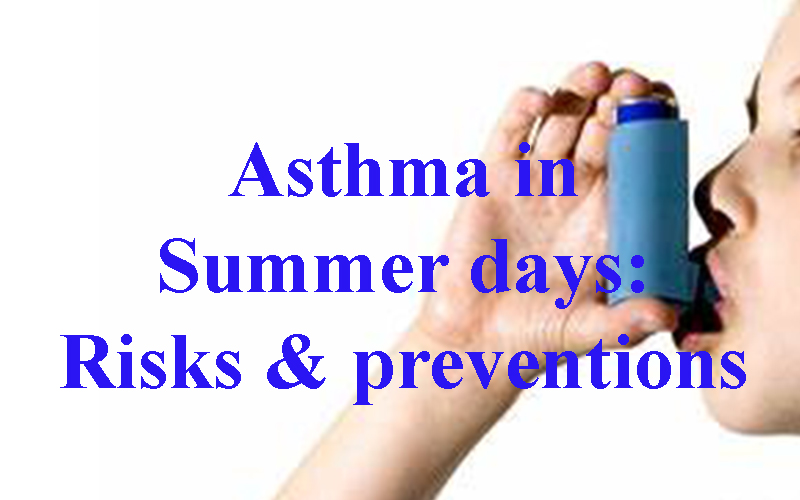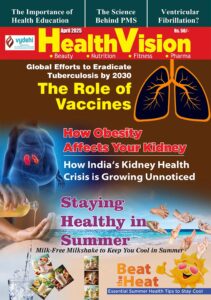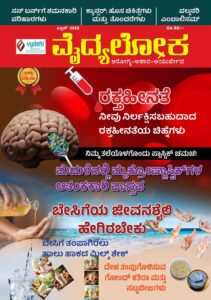Asthma in Summer days – high temperatures, increased outdoor activity and humidity levels is a major risk.
high temperatures and humidity levels can make it harder to breathe. Additionally, summer can be a time of increased outdoor activity, which can lead to more exposure to allergens and other triggers
Asthma is a chronic respiratory disorder that affects millions of individuals worldwide. It can be induced by a number of causes such as allergens, pollutants, exercise, and even temperature fluctuations. Summer weather can be a challenging time for people with asthma, as high temperatures and humidity levels can make it harder to breathe. Additionally, summer can be a time of increased outdoor activity, which can lead to more exposure to allergens and other triggers.


Triggers that can worsen asthma symptoms in summer
- Pollen: Pollen from trees, grasses, and weeds can trigger asthma symptoms in people with allergic asthma.
- Outdoor air pollution: Summer is a time when air pollution levels can be high, especially in urban areas. This pollution can trigger asthma symptoms.
- High humidity: High humidity can make it harder to breathe for some people with asthma.
- Heat and exercise: Exercising in hot and humid weather can trigger asthma symptoms.
- Indoor allergens: Spending more time indoors during the summer months can expose you to indoor allergens like dust mites, mould, and pet dander that can trigger asthma symptoms.
- Viral infections: Summer colds and other viral infections can trigger asthma symptoms.
- Chemical irritants: Chemical irritants like chlorine in swimming pools, air fresheners, and cleaning products can trigger asthma symptoms.
Prevention
- Identify and avoid triggers that can aggravate asthma symptoms, such as outdoor allergens, air pollution, and chemical irritants. Checking air quality data and pollen counts to stay aware of potential triggers.
- Drinking plenty of water can help keep airways moist and decrease the risk of dehydration.
- It is recommended to avoid extreme heat and humidity, and use air conditioning when possible. It is also advised to schedule outdoor activities during cooler parts of the day and stay indoors during peak heat hours.
- Maintain proper asthma hygiene by regularly washing hands to prevent the transmission of infections that might trigger asthma episodes.
- Take medications as prescribed by the doctor. This can help in reducing the severity of asthma symptoms.
- Carry inhaler all the times especially when moving outdoor.
Treatments
- Inhaled corticosteroids: These drugs are used to treat asthma by reducing inflammation in the airways. They can aid in the management of symptoms caused by outdoor allergens and air pollution.
- Short-acting bronchodilators, such as albuterol, are used to provide immediate relief from asthma symptoms. They are often used when symptoms are already present, and they can aid in the management of symptoms brought on by exercise or other asthma triggers.
- Antihistamines and nasal corticosteroids can be used to treat allergies that cause asthma symptoms.
- Immunotherapy, often known as allergy shots, can be used to help people desensitise to allergens that cause asthma symptoms.
In case of an asthma attack, those with severe asthma may need to carry emergency drugs such as epinephrine or oral steroids.
Conclusion
In conclusion, asthma is a chronic respiratory disorder that can be aggravated by a variety of triggers, including those unique to the summer season, such as heat, humidity, outdoor allergens, and air pollution. Working with a healthcare professional to build an individualised asthma management strategy that may include medication, avoiding triggers, staying hydrated, and practising good asthma hygiene is essential for preventing asthma symptoms during the summer. Maintaining a healthy lifestyle can also help with asthma symptoms and general health. While asthma cannot be cured, people with asthma can effectively control their symptoms and live healthy, active lives with proper treatment and care.


Dr. Ravi Shankerji Kesari
MD – Physician, General Physician,
Apollo Spectra Hospital, Bangalore











